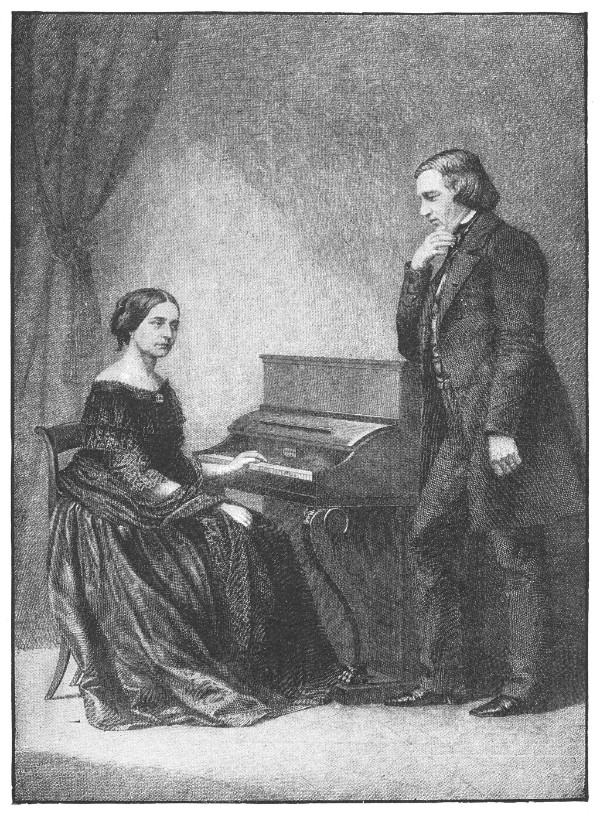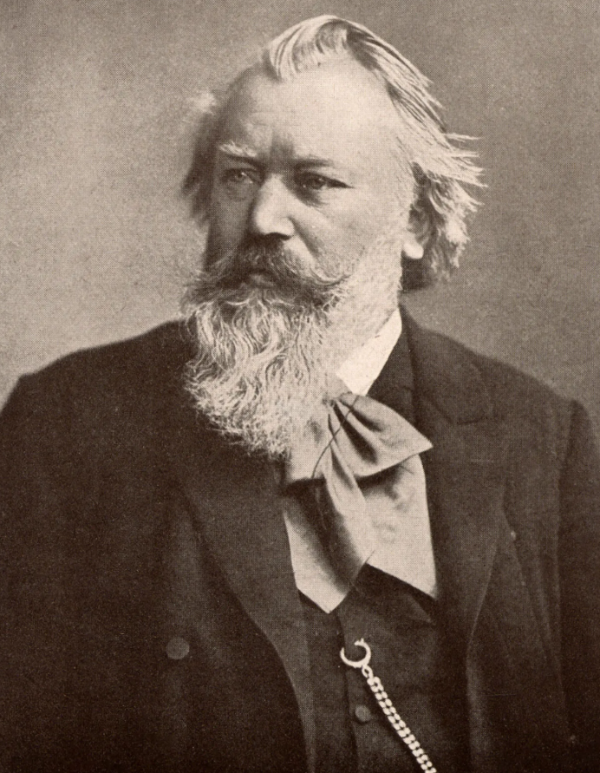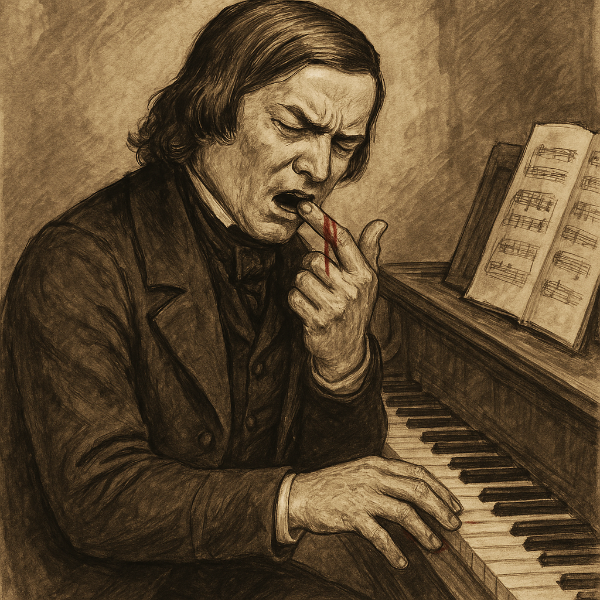Max Steiner, hailed as the “father of film music,” is one of the most influential composers in the history of Hollywood.
Over the course of a career that spanned half a century, Steiner crafted some of the most iconic scores in cinematic history.
Steiner was no stranger to the world of classical music. In fact, he took massive inspiration from Richard Wagner, his tutor Gustav Mahler, and even his godfather, Richard Strauss.
Today, we’re looking at the life of Max Steiner and his impact on the world of cinema…including the taxing work assignment with a deadline so tight, it required twenty-hour workdays and amphetamines to meet.
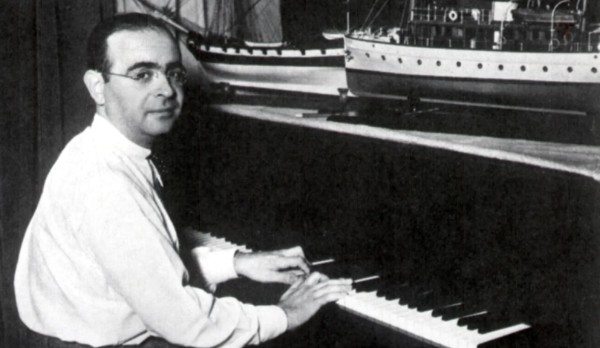
Max Steiner
Max Steiner’s Family Background
Max Steiner was born on 10 May 1888 in Vienna.
His family’s roots in Viennese arts and culture ran deep. He was named after his grandfather Maximilian Steiner, the theater director who popularised Viennese operetta and convinced Johann Strauss II to write for the genre.
Later, Maximilian’s son Gábor followed in his father’s footsteps and became an impresario himself.
Gábor’s wife Marie was also a music-lover and was a dancer early in her career, before giving birth to her only child, Max.
Max’s godfather was none other than composer Richard Strauss!
A Musically Precocious Childhood
Max’s voracious love of music was obvious from an early age. By the age of six, he was taking multiple music lessons a week.
He also started improvising on the piano, and with his father’s encouragement, writing the improvisations down.
At twelve, again with the support of his father, he conducted a performance of composer Gustave Kerker’s operetta The Belle of New York.
Max Steiner’s Musical Education
In 1904, he began attending the Imperial Academy of Music. While there, he was tutored by Gustav Mahler.
He breezed through four years of curriculum in one, studying composition, harmony, counterpoint, and a veritable orchestra’s worth of instruments.
Around this time, he also composed his first operetta, The Beautiful Greek Girl. No doubt to his disappointment, his father passed on staging it, claiming it wasn’t up to his standards.
Max rebelled by offering Greek Girl to another impresario. To his satisfaction, it was a success, running for a year.
Max Steiner’s London Career
The success of The Beautiful Greek Girl led to a number of conducting opportunities abroad.
A British production invited him to conduct The Merry Widow, an operetta by his father’s former colleague Franz Lehár.
Steiner moved to London and stayed there for eight years, conducting The Merry Widow and other operettas.
Escape to New York
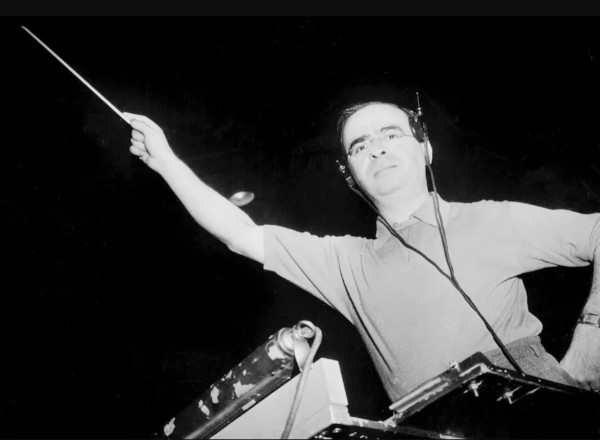
Max Steiner
However, the onset of World War I brought his career to a screeching halt. Britain declared war on Austria in August 1914. Steiner was twenty-six years old.
Because of his nationality, he was interned in Britain as an enemy alien. He was only released because of his friendship with the Duke of Westminster.
Despite that friendship, he was ultimately ejected from Britain and his scores compounded, ending up in New York City with just $32 to his name.
A Broadway Career, and a Start in Film
Steiner soon found work on Broadway, orchestrating, arranging, and conducting. He conducted works by George Gershwin, Jerome Kern, Victor Herbert, and others.
He began watching the development of the nascent movie industry with great interest, speaking to studio founders and directors about the potential of music to accompany silent films.
In 1927, he orchestrated and conducted a Broadway musical by composer Harry Tierney. When Tierney was hired by RKO Pictures, he urged the studio to hire Steiner, too.
At the time, the potential of movie music was yet to be fully understood. It was thought by studio heads that soundtracks should come from a library of cheap pre-recorded tracks, as opposed to being written for specific films (an idea that Steiner would push back hard against). Steiner was hired as the head of the music department at RKO, but only on a month-to-month contract.
He scored Dixiana, the Western Cimarron, and Symphony of Six Million. Symphony of Six Million, with its extensive score, was a landmark in cinema history, and it helped to convince film executives of the impact that a soundtrack could have on a movie.
Preview Clip | Symphony of Six Million | Warner Archive
Max Steiner’s Hollywood Career
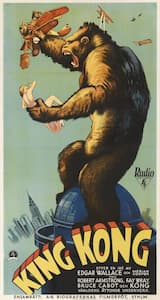
King Kong
Throughout the 1930s, Steiner was on the front lines of establishing the language of movie music, influenced by figures like Richard Wagner and Richard Strauss.
He scored King Kong in 1933, finishing the iconic score in a jaw-dropping two weeks. It has often been called the most influential soundtrack of all time, demonstrating for executives, producers, and audiences once and for all what exactly a custom-written score could do for a movie.
Steiner relied on the Wagnerian idea of leitmotif, i.e., playing specific themes during the appearance of specific characters or ideas.
King Kong (1933) – Beauty Killed the Beast Scene
He also composed for and conducted many of the Astaire/Rogers musicals.
In 1937, Steiner was hired by Warner Bros, where he continued his extremely productive output.
Scoring Gone With the Wind
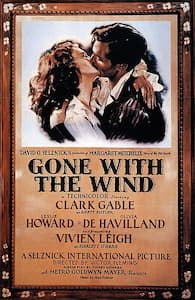
Gone With the Wind
In 1939, Steiner was hired by Selznick International Pictures to score Gone With the Wind.
He composed the score to the nearly four-hour film in three months. At the same time, in the year 1939, he composed the score for twelve other films.
Producer David O. Selznick had concerns that Steiner wouldn’t be able to finish in time, so he hired Franz Waxman to write a backup score.
However, it wasn’t needed. Steiner ended up delivering by working twenty-hour days, aided by prescribed injected amphetamines. He also had the assistance of four orchestrators.
Today, it’s widely regarded as one of the greatest film scores of all time.
Gone With the Wind (1939) (Trailer)
Max Steiner’s Academy Awards
Gone With the Wind didn’t win an Academy Award for best score (it lost out to The Wizard of Oz), but over the course of his career, Steiner would win multiple Oscars.
In 1936, he won for his score to the thriller The Informer. In 1943, he won another for the drama Now, Voyager, and yet another in 1945 for the wartime drama Since You Went Away.
Other classics that he scored during this time include Casablanca, The Big Sleep, Mildred Pierce, and others.
Casablanca (1942) – Suite – Max Steiner
Max Steiner’s Late Career
During the 1950s, changing tastes in movie music meant that Steiner’s lush, operatic style began to fall out of fashion.
He had one last major triumph with the theme for A Summer Place in 1959, which spent nine weeks at number one in 1960. It beat out Ray Charles, Ella Fitzgerald, Elvis Presley, and Frank Sinatra at the Grammys for Record of the Year.
A Summer Place Theme
Sadly, his health and vision began deteriorating later in life. He died of congestive heart failure in 1971 at the age of 83.
Max Steiner’s Innovations
Max Steiner: Father of Film Music
Steiner was one of the first composers to employ a measuring machine to guarantee exact timings in a score. Before him, most composers just used a stopwatch, but Steiner felt it was important to sync his score with the film more closely than a watch’s second hand would allow.
He was also among the first to embrace click tracks. A click track consists of a series of holes punched into soundtrack film, creating a metronomic effect. Headphones can then be used and instruments played along to an exact tempo.
Throughout his career, he was on the cutting edge of developing ideas and principles about what scenes should and shouldn’t have music in them, as well as how loud music should be relative to dialogue.
He was also fascinated by the power of diegetic music (i.e., music that is played within the scene, that the characters also hear). Think of the famous renditions of “La Marseillaise” or “As Time Goes By” in Casablanca.
As Time Goes By (Full Song – Casablanca ’42) – Humphrey Bogart – Ingrid Bergman – Classic Romance
Max Steiner’s Modern Influence
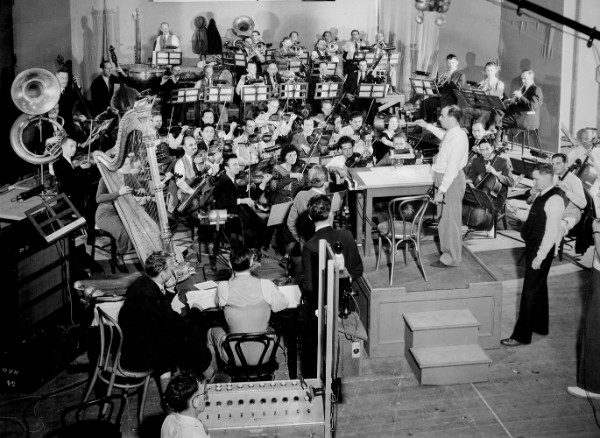
Max Steiner conducting the score of King Kong
Steiner’s influence continues even today.
John Williams has cited him (as well as Steiner’s compatriot Erich Wolfgang Korngold) as a major influence, as has James Newton Howard, who scored the 2005 remake of King Kong.
He also pushed for film composers to earn residuals, helping to create an expectation that composers would be fairly compensated for their work.
It’s clear that for as long as movies exist, Max Steiner’s influence will continue to be felt.
For more of the best in classical music, sign up for our E-Newsletter

